This school in India saves girls as young as 12 from the family business: prostitution
- Share via
In the bare dirt courtyard of a low-slung building in a small farming village, a group of girls chase one another in a round of kabaddi, a local schoolyard game a bit like Red Rover.
It could be any small village school in a desperately poor rural area of India — except that these girls have barely escaped a 21st century system of slavery.
More children are sold into prostitution in India than in any other country. In villages such as Simraha, it is not uncommon for girls as young as 12 or 13 to be sold.
The school keeps them safe and away from the home-based brothels that they were growing up in.
— Ruchira Gupta
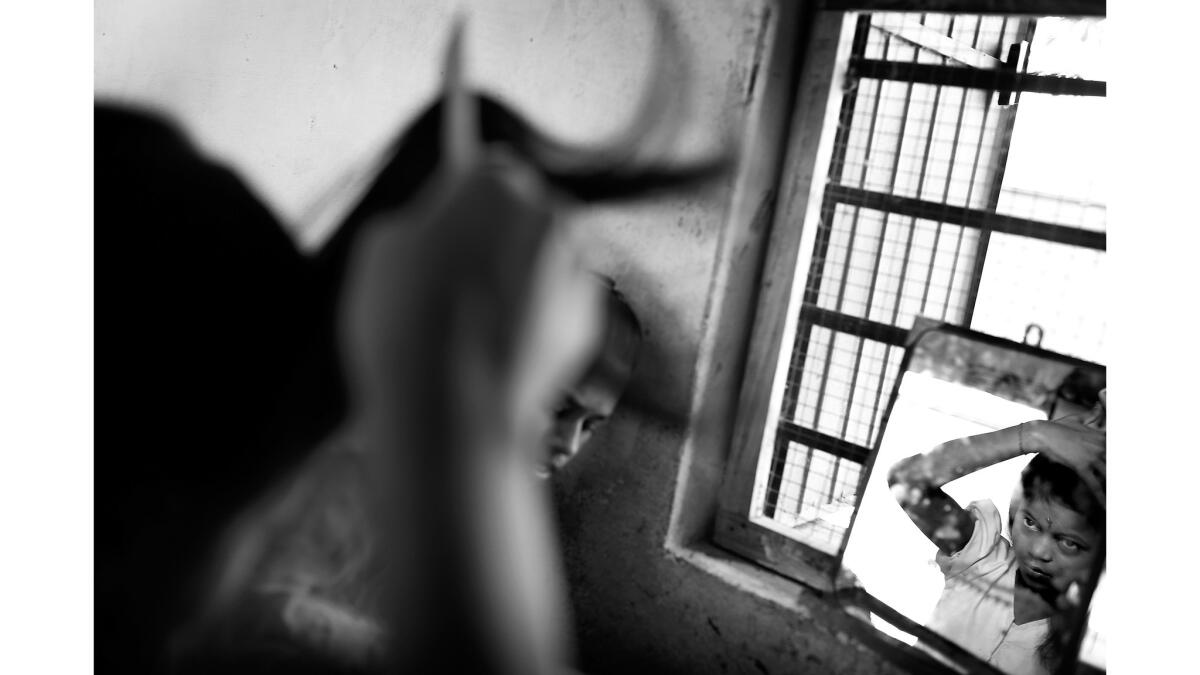
Twelve-year-old Aarti Kumari combs her hair at the Kasturba Gandhi Girls School.
At this school, many of the children playing games, doing homework, helping with dinner and making crafts are the daughters of prostitutes. They are members of a marginalized caste known as the Nat community, which is trapped in a system of hereditary prostitution.
Their school, not far from the border with Nepal in the Indian state of Bihar, is part of a national program of girls’ boarding schools called Kasturba Gandhi Balika Vidyalaya, intended specifically for minority groups. Founded by the nonprofit organization Apne Aap, its supporters and the Bihar state government, the school aims to break the bonds of caste and inequality.
“The school keeps them safe and away from the home-based brothels that they were growing up in,” said Ruchira Gupta, Apne Aap's founder. “Otherwise, they would join their mothers in prostitution.”
The Nat group has been relegated to the margins of Indian society since the 1870s, when it was classified as a “criminal tribe” by British colonial rulers.
Gupta's group works to get the girls out of the reach of men who might sell them — by enrolling them in the boarding school but allowing weekend visits with their mothers and siblings. “It's not a five-star school,” Gupta said. “But it's neat and clean.”
For most of the 100 girls at the school, it's the first time any member of their family has been offered access to education. A few graduates of the school are even heading off to college — with ambitions of becoming lawyers and doctors.
But many struggle to achieve a much smaller ambition: avoiding being caught up in systemic prostitution.
At the school, fathers regularly put pressure on the girls to do their “family duty” and start working as prostitutes. Some fathers have tried to snatch the girls back.
By keeping costs down, Apne Aap is able to keep the girls in school for about $160 a month per student. But keeping them safe is a long-term commitment, Gupta said.
“Many people think: ‘Oh, enroll a child in school,’” Gupta said. “But keeping that child in school is even harder.”
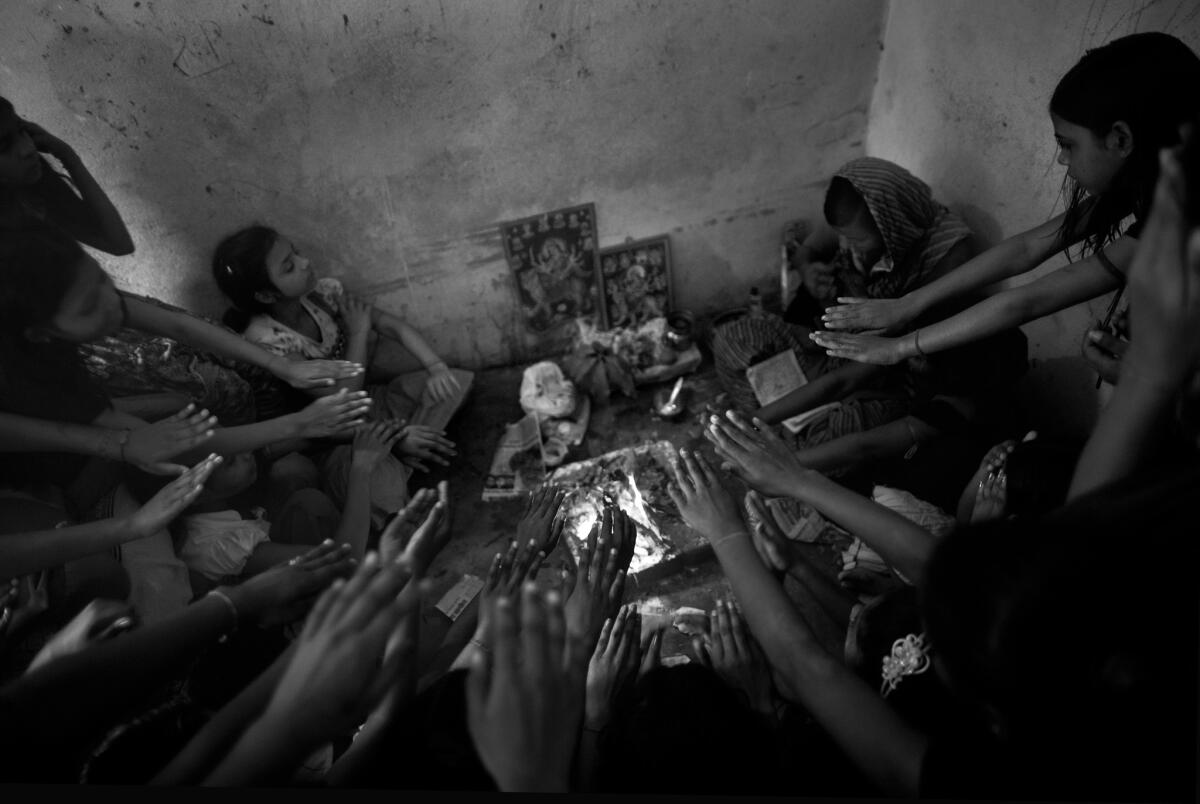
The girls and their math teacher, Shruti Priya, observe the Durga Puja festival that honors the victory of Goddess Durga over the evil buffalo -- hence the victory of good over evil.
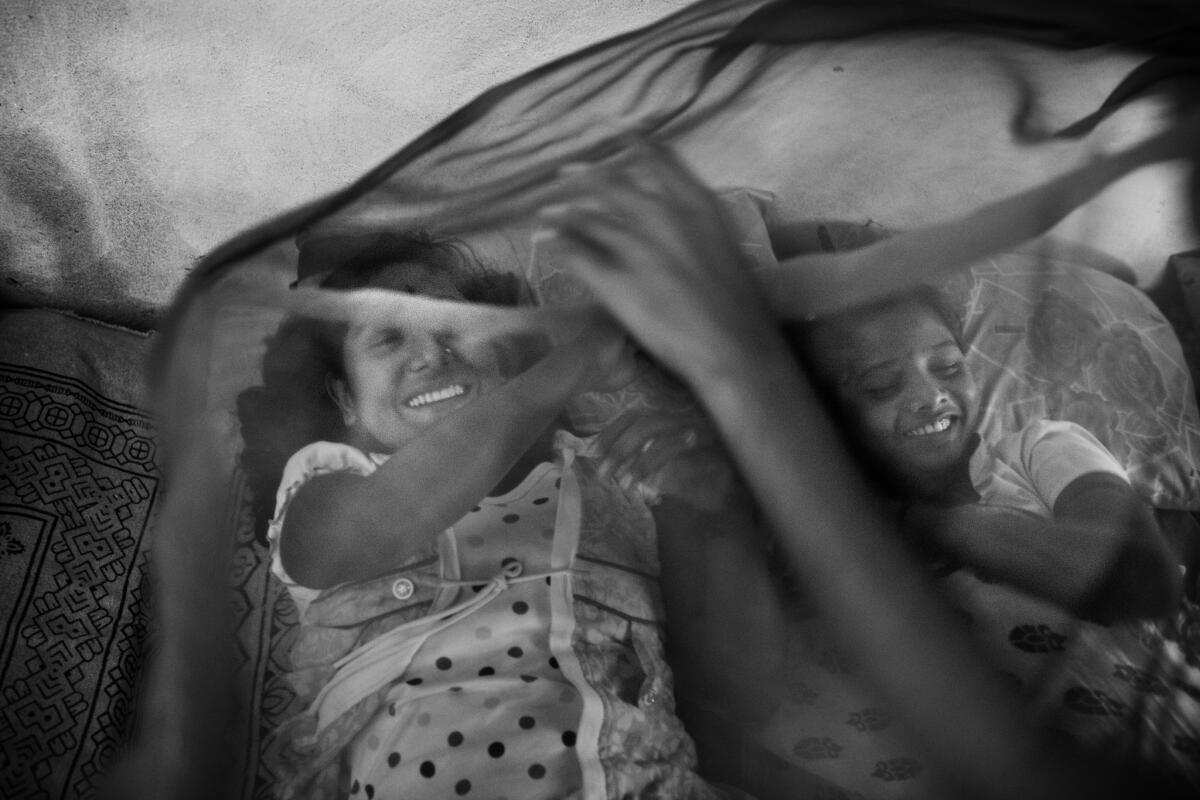
Neelam and Urmila, both 14, pass the time playing during the high holiday season. The girls overcome caste stigma by forming friendships that take away the boundaries of caste and class.
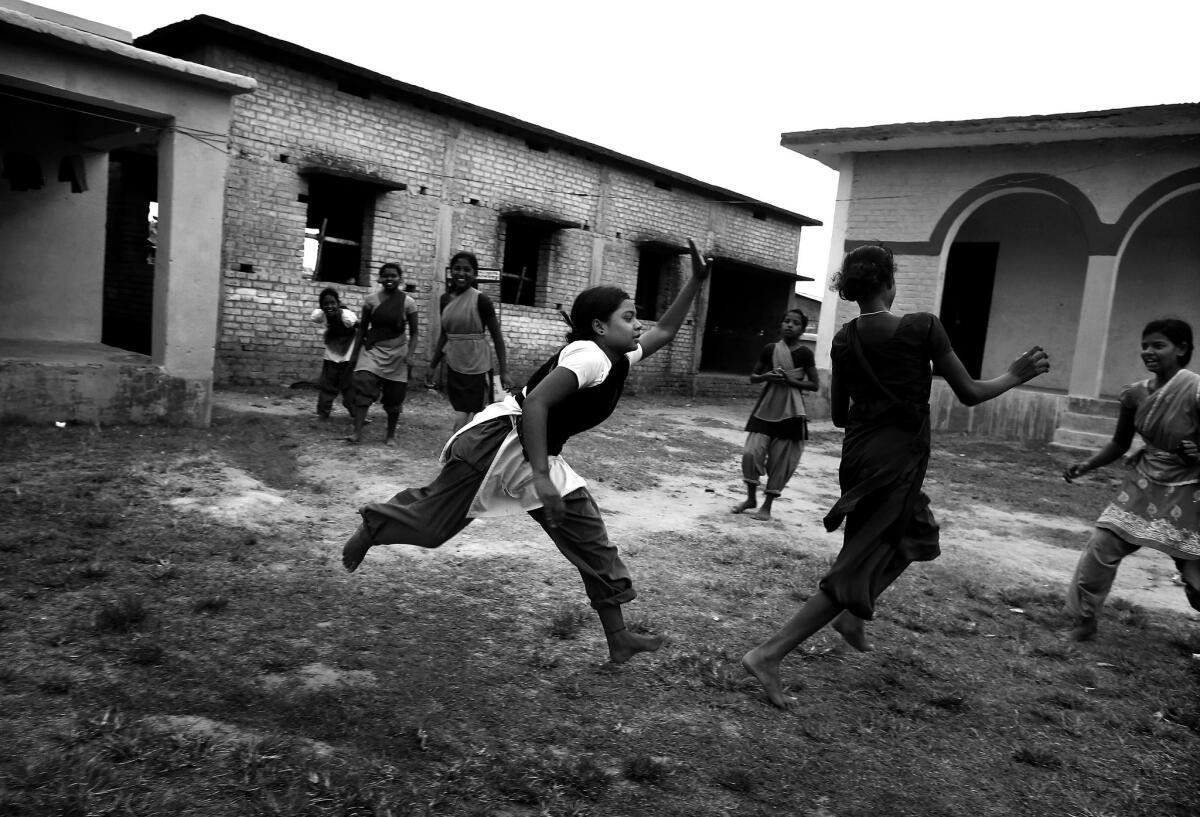
The school girls play a game of kabaddi during recess.
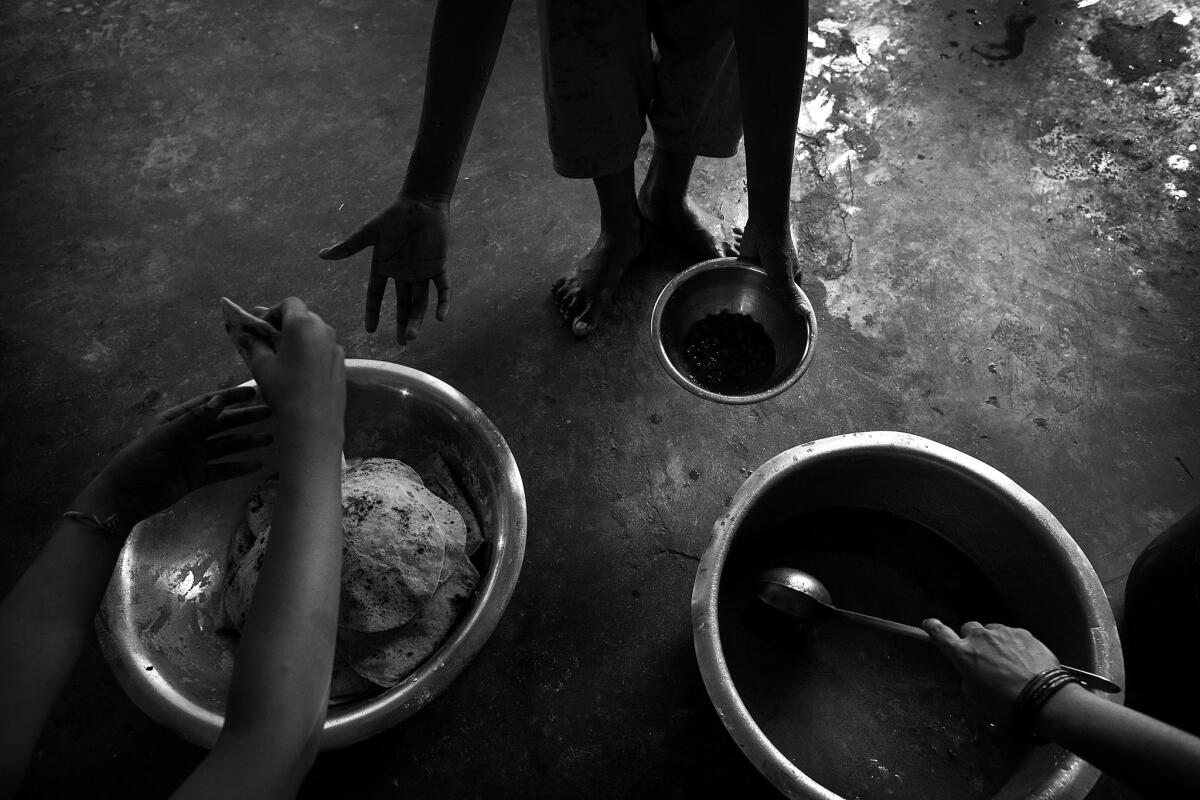
The girls get three meals a day at the boarding school.
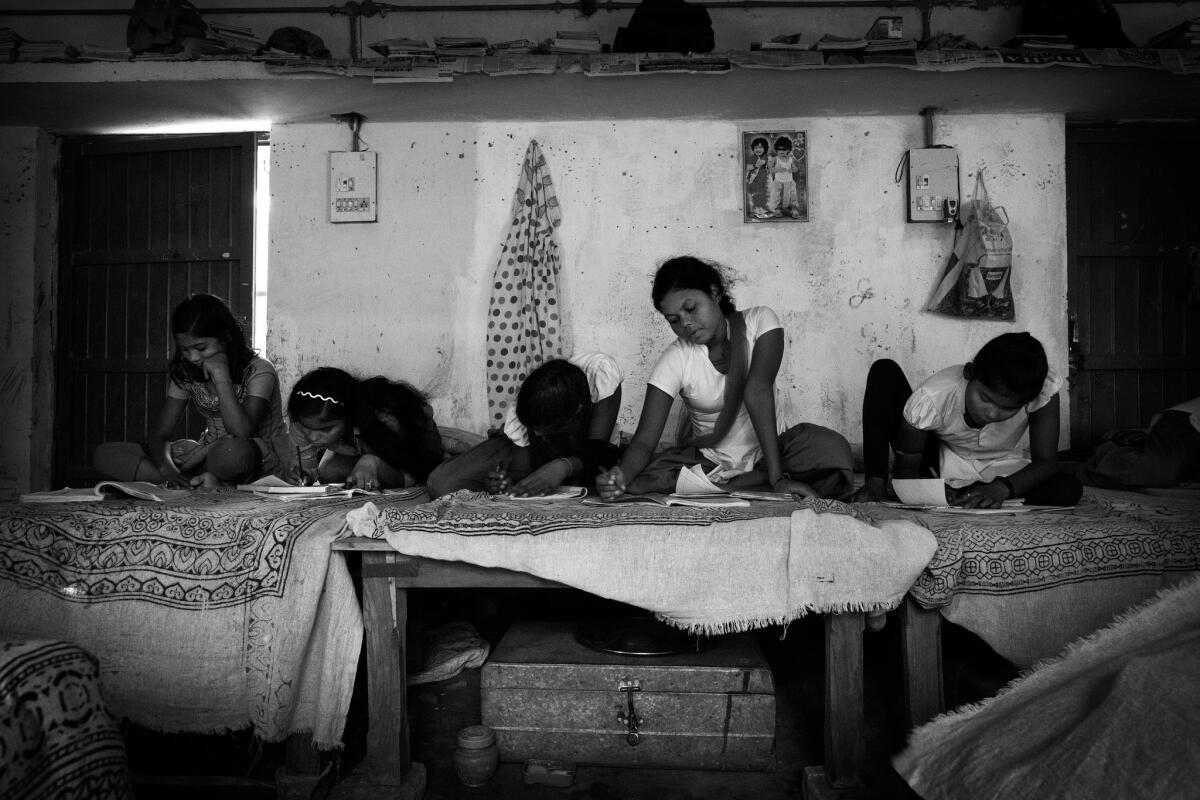
The girls work on homework.
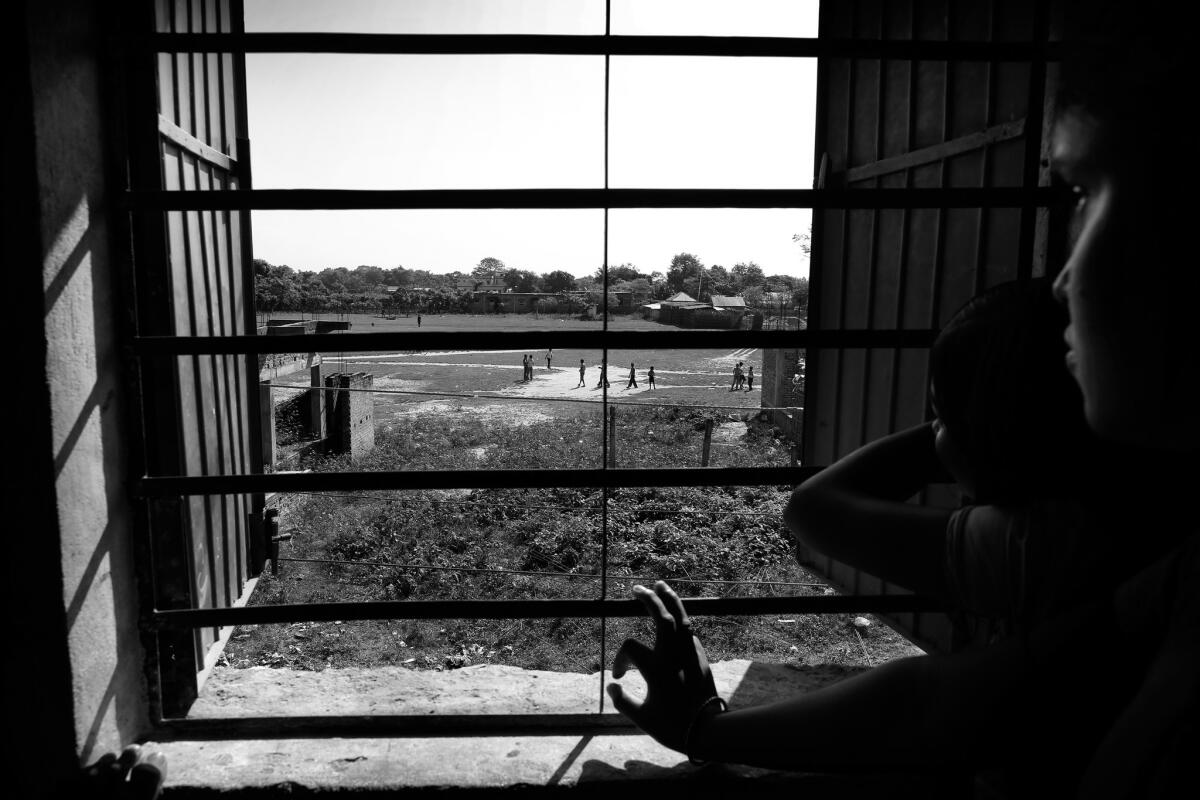
The girls are still vulnerable to sex traffickers who routinely prowl the outside of the school hoping to abduct them into a life of prostitution. Here two young school girls listen to men call out to them from the field, trying to get their attention.
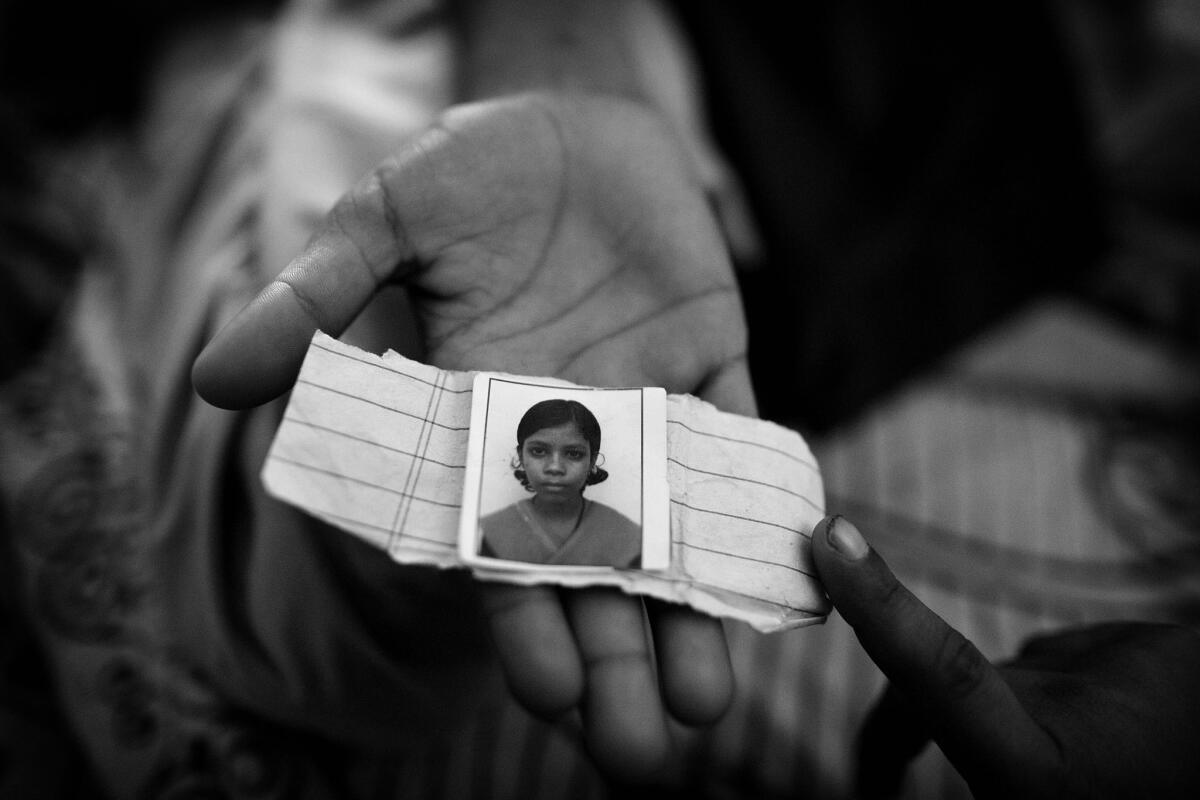
All the girls supported by Apne Aap are given photo identification to show that they are members of the group. This serves as protection when a trafficker accosts her, because he immediately knows that Apne Aap staff will follow up if she goes missing.
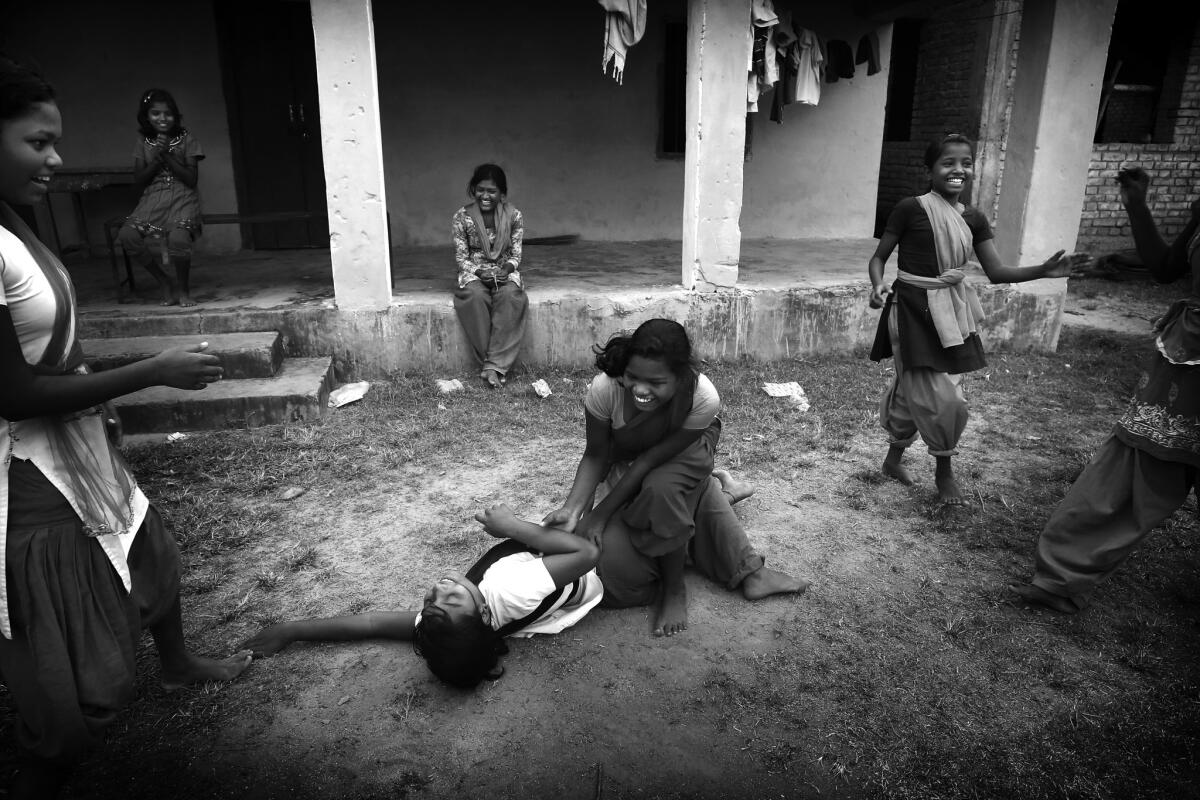
The young girls develop strong bonds at the boarding school and have the opportunity to act carefree, a luxury most do not have in their communities.
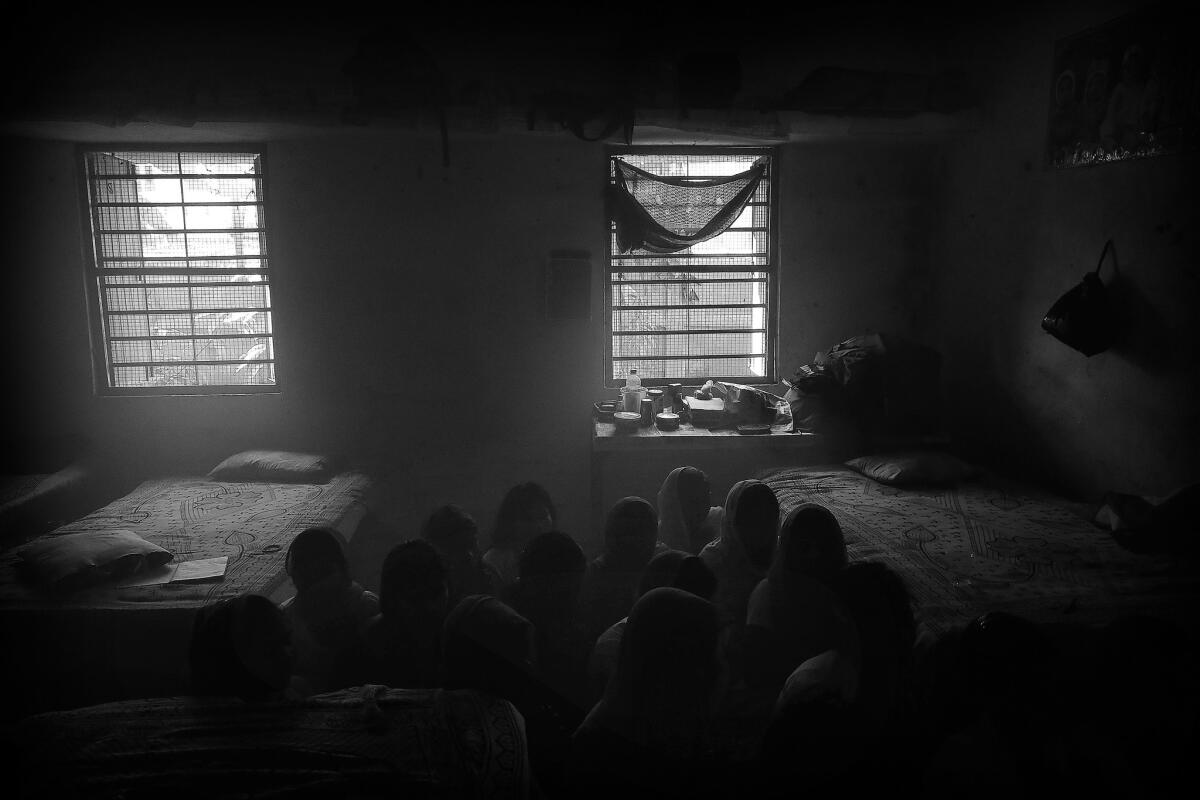
The girls pray together inside their communal bedroom that sleeps 20 during the five holy days of Durga Puja.
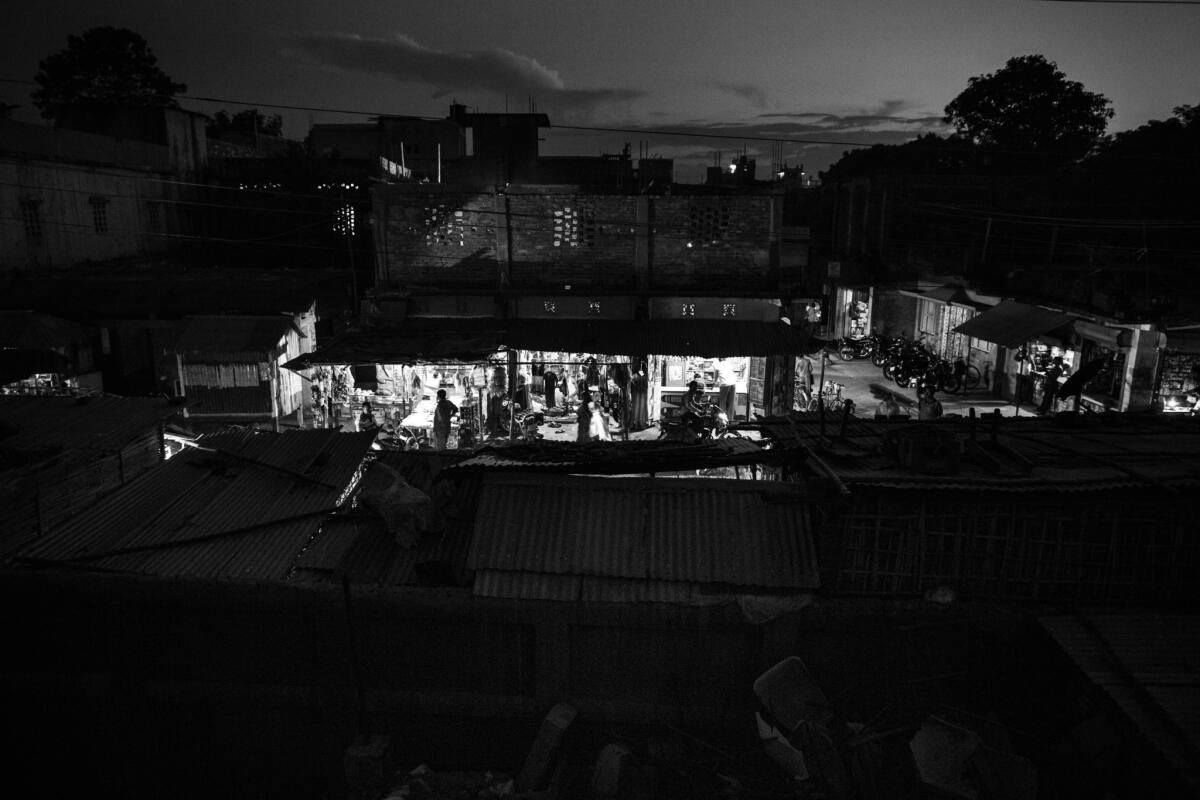
A view from the roof of the boarding school, situated not from from the Indo-Nepal border town of Bihar, one of the poorest districts in India.
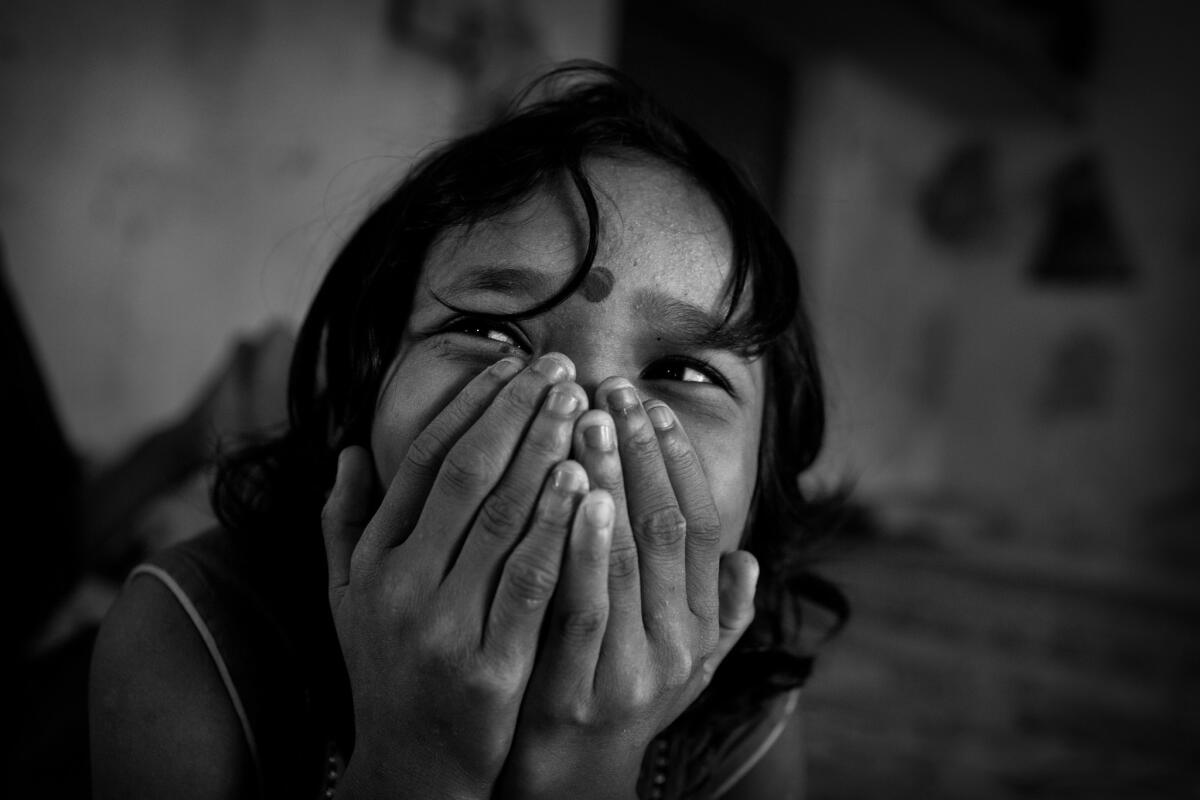
Twelve-year-old Karishma enjoys a shy moment laughing with her friends inside the boarding school, where she lives with some other 100 girls.
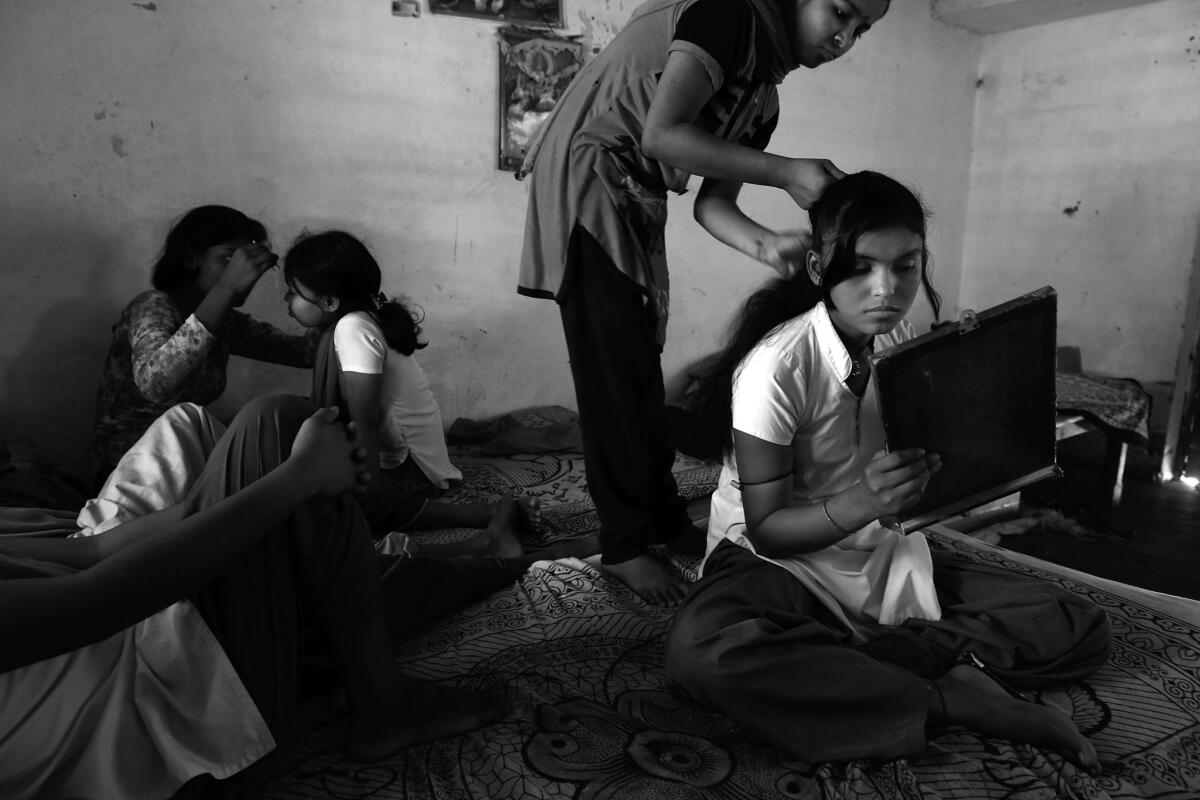
Rukhsar Khatun has her hair combed by a schoolmate. Rukhsar attends the school with her sister Shahana, not pictured. Their father had forced his two other daughters into prostitution, and he pulled Rukhsar and Shahana out of the school in 2011, beating their mother when she protested. Their mother ran away with the girls so she could return them to the school and now lives in a secret location.
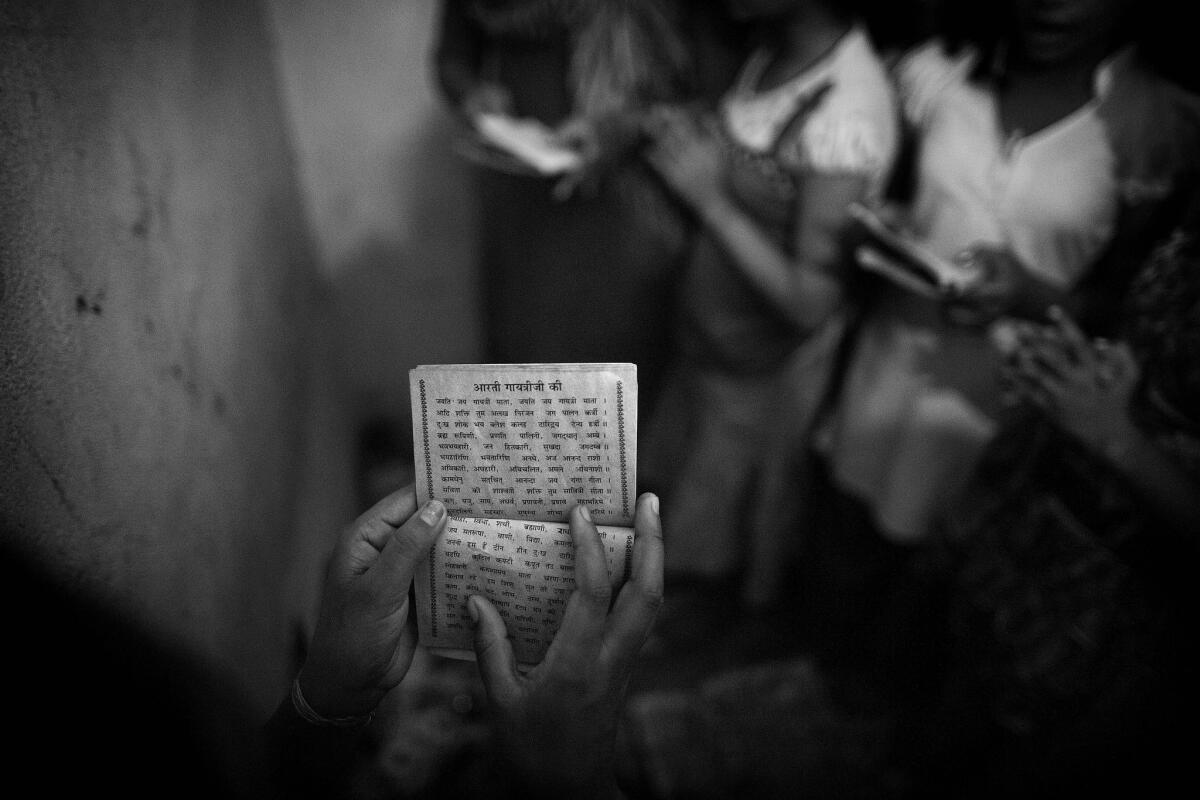
The girls observe the Durga Puja festival, which honors the victory of Goddess Durga over the evil buffalo, hence the victory of good over evil.
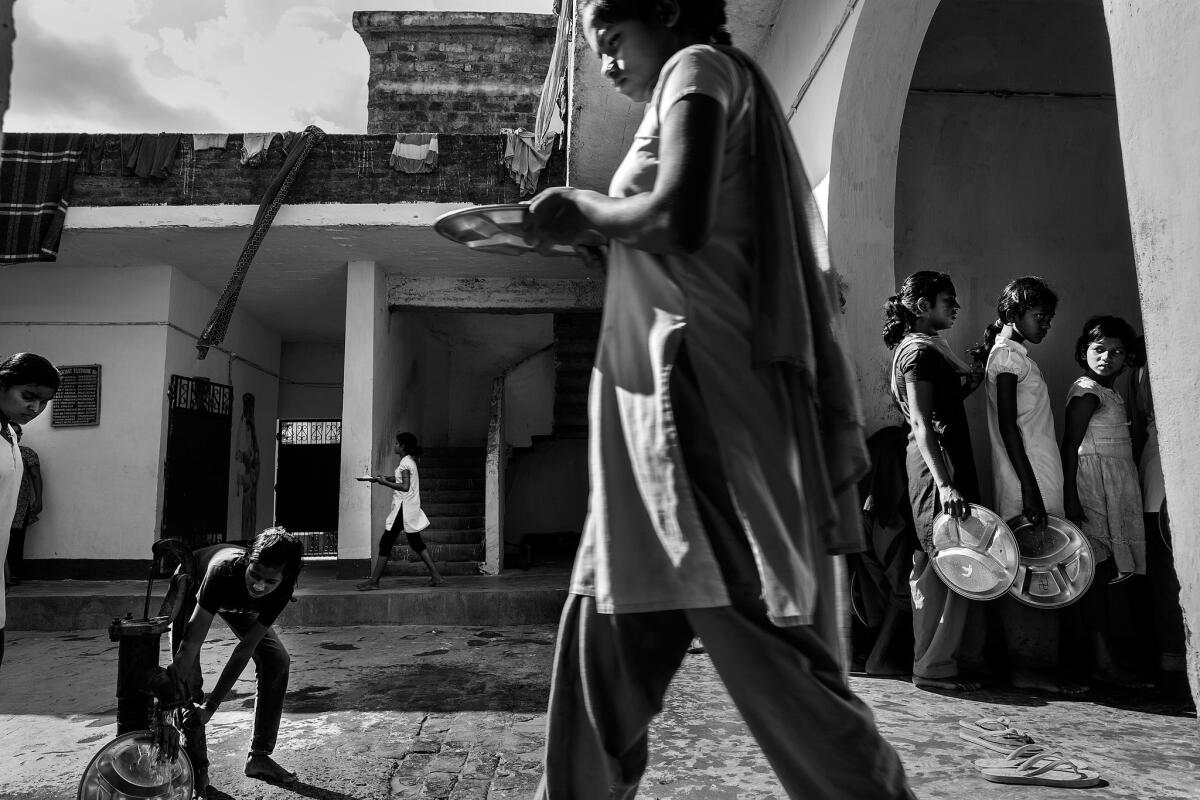
The girls get three meals a day at the boarding school, which is also supported by the local government. They are served food in shifts so as to accommodate all the children fairly.
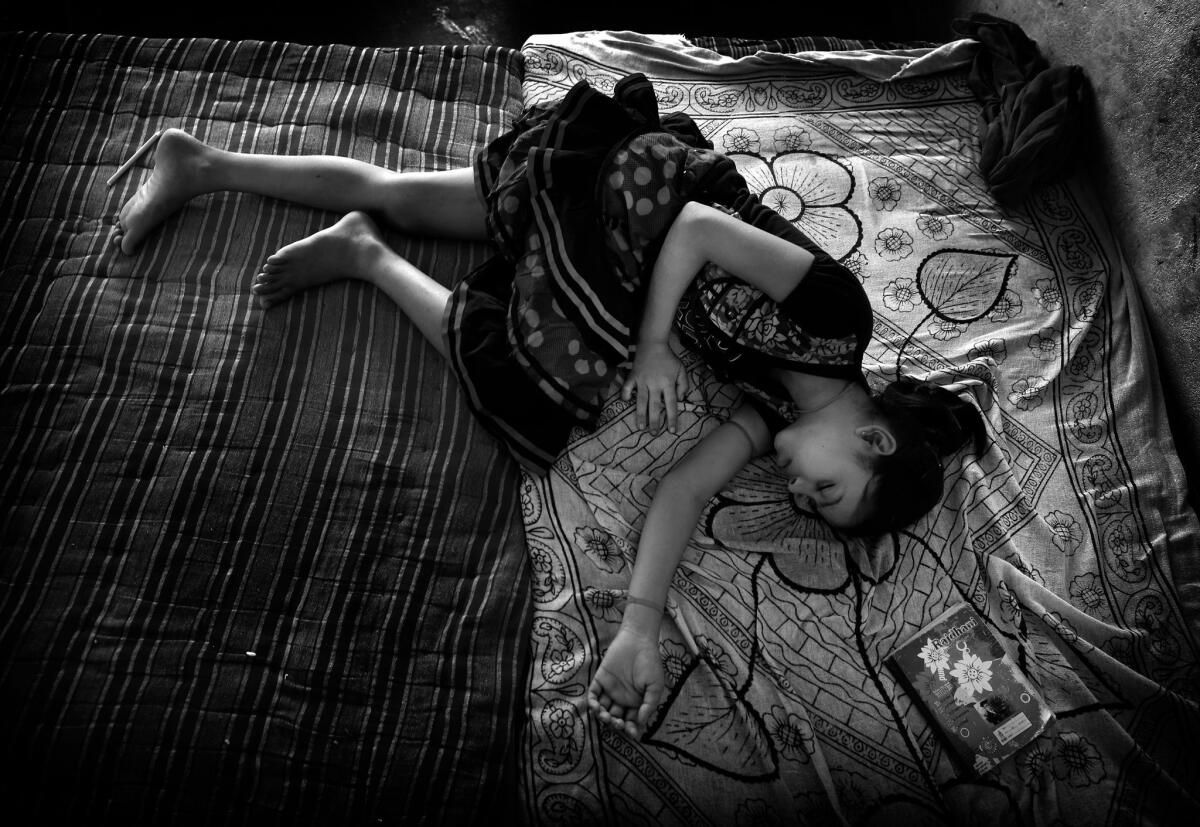
Sabhyata, 12, sleeps after reading a book.
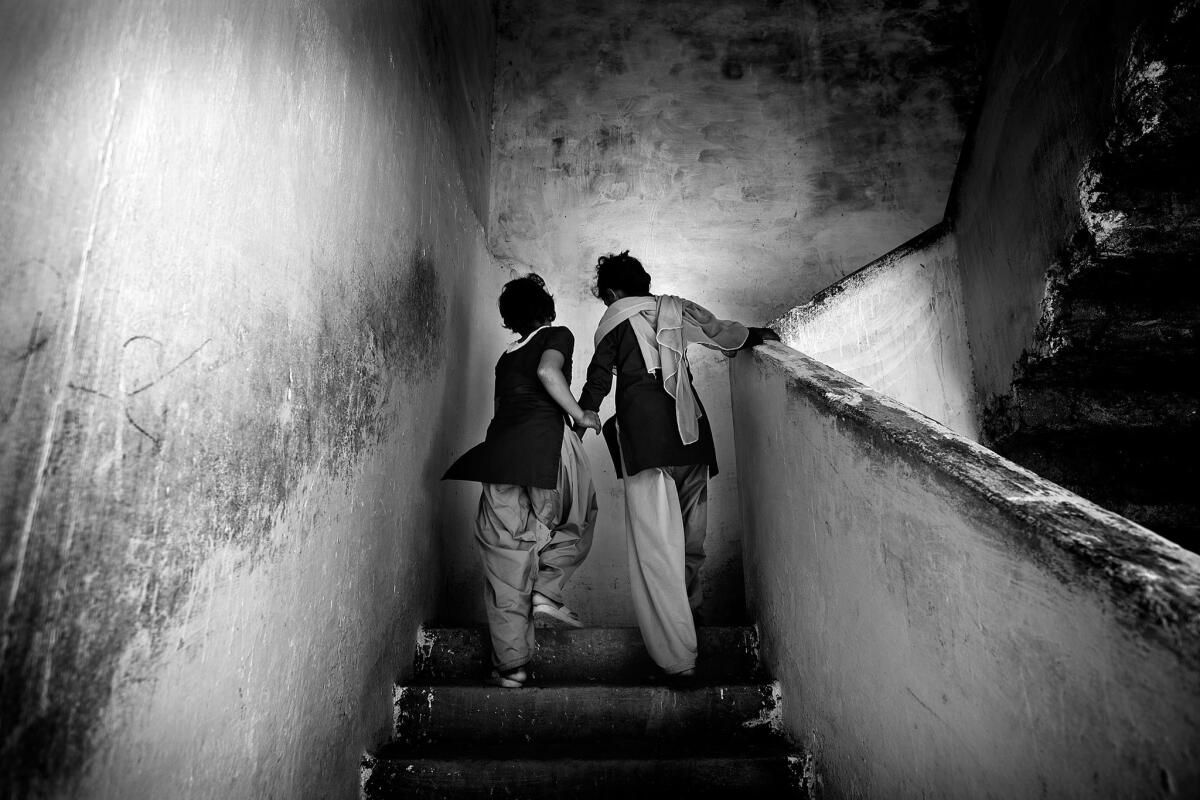
Thousands of young girls in India and Nepal are sold for sex and imprisoned in urban brothels in Kolkata, New Delhi and Bombay. The girls thrive when given an education.
ALSO
22 of the world's most polluted cities are in India
This is how serious India's drought has gotten
Even in fast-changing India, kushti wrestling is a wellspring of power, pride and identity
On Twitter: @photospice
Sign up for Essential California
The most important California stories and recommendations in your inbox every morning.
You may occasionally receive promotional content from the Los Angeles Times.








